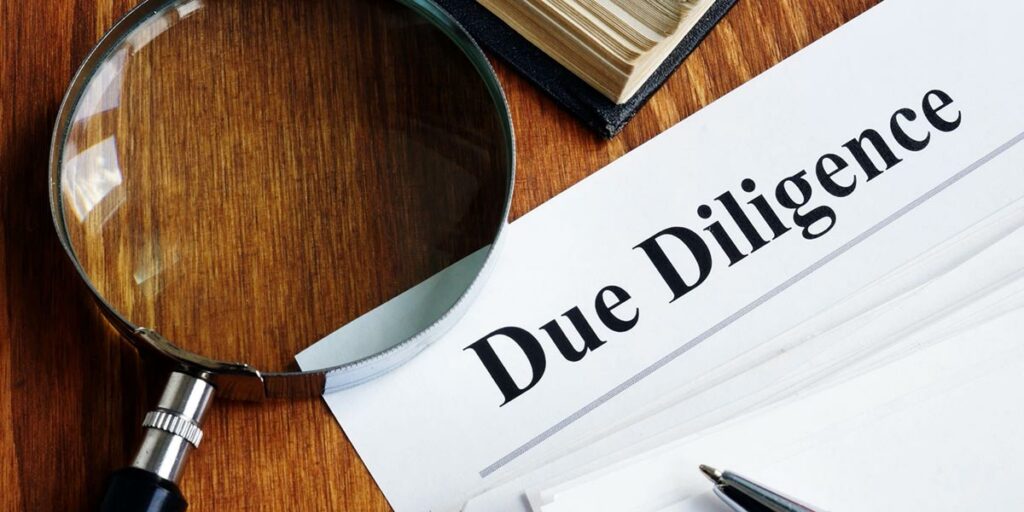Due Diligence in Thailand. Conducting due diligence is a critical step in any business transaction or investment, and this holds true in the vibrant and diverse business landscape of Thailand. Whether entering into partnerships, acquiring businesses, or investing in real estate, thorough due diligence ensures that all aspects of the transaction are examined, mitigating risks and fostering informed decision-making. This article delves into the significance of due diligence in Thailand, covering its various aspects, best practices, and the role it plays in business success.
I. Understanding Due Diligence
A. Definition: Due diligence is a comprehensive examination and verification process that involves investigating and assessing the legal, financial, operational, and regulatory aspects of a business or investment opportunity.
B. Risk Mitigation: The primary goal of due diligence is to identify and assess potential risks associated with a transaction, allowing parties to make informed decisions and implement risk mitigation strategies.
II. Types of Due Diligence in Thailand
A. Legal Due Diligence:
- Verifying the legal status and compliance of the business with Thai laws and regulations.
- Examining contracts, licenses, and agreements to ensure they are valid and enforceable.
B. Financial Due Diligence:
- Assessing the financial health of the business through a thorough examination of financial statements, cash flow, and debt obligations.
- Identifying any outstanding liabilities, tax issues, or financial risks.
C. Operational Due Diligence:
- Evaluating the efficiency and effectiveness of the business’s operations and processes.
- Identifying potential operational challenges or weaknesses that may impact performance.
D. Market Due Diligence:
- Analyzing market trends, competition, and potential opportunities for growth.
- Understanding customer demographics and preferences in the context of the Thai market.
III. Best Practices for Due Diligence in Thailand
A. Engage Local Experts:
- Collaborate with local legal professionals, accountants, and industry experts familiar with the nuances of the Thai business environment.
- Leverage their local knowledge to navigate cultural, legal, and regulatory intricacies.
B. Document Review:
- Conduct a meticulous review of all relevant documents, including contracts, licenses, permits, and financial records.
- Ensure that all documentation is authentic, up-to-date, and complies with Thai legal standards.
C. Site Visits and Inspections:
- Conduct on-site visits to assess the physical assets and operations of the business.
- Identify any discrepancies between the presented information and the actual state of affairs.
D. Interview Key Stakeholders:
- Interview key executives, employees, and stakeholders to gain insights into the company’s culture, management practices, and potential challenges.
- Assess the reliability of information provided by conducting multiple interviews.
IV. Due Diligence in Real Estate Transactions
A. Title Deed Verification:
- Confirm the authenticity and legality of property titles through thorough verification.
- Identify any encumbrances or legal issues associated with the property.
B. Zoning and Land Use Compliance:
- Ensure that the property complies with local zoning regulations and land use restrictions.
- Verify that the intended use of the property aligns with local planning requirements.
C. Environmental Considerations:
- Assess potential environmental risks associated with the property.
- Identify any environmental regulations that may impact the use or development of the property.
V. Conclusion
In the complex business landscape of Thailand, due diligence emerges as a cornerstone for successful transactions and investments. By adopting a holistic approach that encompasses legal, financial, operational, and market considerations, businesses and investors can navigate the intricacies of the Thai market with confidence. Engaging local experts, thoroughly reviewing documentation, and conducting on-site inspections are crucial steps in ensuring that the due diligence process is comprehensive and effective. Ultimately, the diligence invested in due diligence contributes to informed decision-making, risk mitigation, and the long-term success of business endeavors in Thailand.


